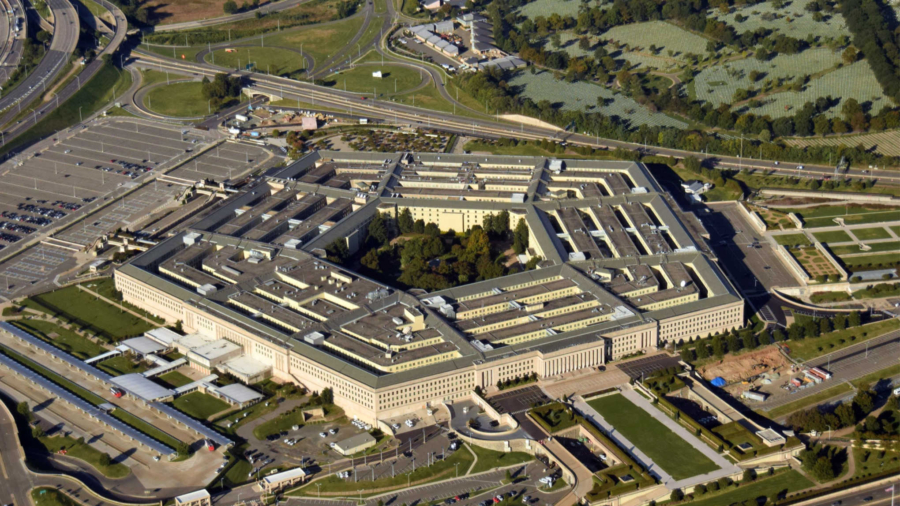The U.S. military investigated 183 service members over the past year for suspected extremist activity, according to a new report released by the Department of Defense Office of the Inspector General (DODIG).
The DODIG report, released on Thursday, provided an annual assessment of prohibited and extremist activity within the ranks. The report was required as part of a provision in the 2021 National Defense Authorization Act (NDAA).
In total, the DODIG identified 275 cases of suspected prohibited activity, including 183 cases of suspected extremist activity. Of those cases of suspected extremism, 78 involved individuals engaging in or supporting the overthrow of the U.S. government; 44 involved individuals engaging in or supporting acts of terrorism; and 22 involved individuals advocating for or engaging in violent actions to achieve goals that were political, religious, discriminatory, or ideological in nature.
The 183 suspected cases of extremism also involved 32 instances of military personnel advocating for systemic discrimination on the basis of race, national origin, religion, sex, gender identity, or sexual orientation.
A further four cases involved military personnel taking part in or encouraging others within the Department of Defense to disobey orders or take unlawful actions to disrupt the U.S. military. Three more cases stemmed from military personnel advocating or engaging in violence to deprive people of their rights under U.S. law.
The Department of the Army suspected 130 soldiers of extremist activity in fiscal year 2023. Meanwhile, the U.S. Air Force suspected 29 airmen of extremism. The U.S. Navy and U.S. Marine Corps suspected 10 of their members each, and the U.S. Space Force suspected four guardians of extremist activity.
In addition to the 183 cases of suspected extremism, the report describes a further 58 cases of military personnel with suspected ties to criminal gang activity.
Of the 275 total cases of prohibited activity described in the report, 68 cases saw the suspects cleared of wrongdoing by investigators.
Investigators substantiated 69 additional allegations, of which two resulted in a military court martial, 17 resulted in non-judicial punishments, 19 were punished with involuntary separations, three with counseling, and 28 with other unspecified administrative corrective actions.
The DODIG report did not provide figures for the types of suspected prohibited activities that were substantiated and the types of prohibited activities in which the suspects were cleared of wrongdoing.
136 of the 275 cases of prohibited activity identified within the military in the past year remain open.
The DOD has taken actions to address all 275 cases of suspected prohibited activity it identified in fiscal year 2023, including referring 56 cases to external civilian and federal law enforcement agencies. The DODIG report did not specify the disposition of the cases that were referred to external agencies.
Military Faces Challenges in Tracking Extremism
Extremism has been a point of focus for the Department of Defense since the start of President Joe Biden’s administration. President Biden’s defense secretary, Lloyd Austin, ordered the military to undergo a stand-down period to address extremism within its ranks as one of his first actions in office.
This new DODIG report also marks the second time the Pentagon office has issued an annual report on extremism and other prohibited activity within the military ranks. Last year’s report identified 134 suspected cases of anti-government, racially-motivated, terrorist-affiliated, and uncategorized extremist activity within the ranks. Last year’s report identified another 12 instances of U.S. troops being suspected of “supremacist” affiliations, and 65 instances in which service members were suspected of engaging in criminal gang activity.
Numerous U.S. military members and veterans have been prosecuted in recent years for actions in support of a range of extremist ideologies. Larry Raynold Williams, a U.S. airman in Utah, was investigated by the FBI’s Joint Terrorism Task Force and convicted of using fire and explosives to destroy a Salt Lake City Police Department patrol car during a May 2020 riot following the death of George Floyd.
Another U.S. airman, Steven Carrillo, was convicted of killing a federal security officer in Oakland in May of 2020, and of killing a Santa Cruz County Sheriff’s deputy in a separate attack a week later.
In February, authorities charged a former National Guardsman, Brandon Russell, on allegations of plotting attacks on the power grid around Baltimore, Maryland. Prosecutors allege Mr. Russell professed “National Socialist” beliefs and sought to attack the power grid in furtherance of racially or ethnically motivated violent extremist beliefs.
Dozens of current and former U.S. service members have also been arrested and convicted for their role in the breach of the U.S. Capitol on Jan. 6, 2021.
The new DODIG report did not detail the various motivating ideologies or criminal gang affiliations associated with the 275 cases of suspected prohibited activity the military had identified in fiscal year 2023.
The latest DODIG report highlights several persistent challenges in tracking extremism cases across the military. For instance, the report notes that the U.S. Army uses multiple independent databases to store data on prohibited activities within the ranks once an investigation is started, but said it’s “impossible” to properly track allegations of prohibited activity when a formal investigation is not started. The Department of the Air Force also does not employ a single cohesive reporting system.
The Department of the Navy told the DODIG that its efforts to track suspected prohibited activity are “time consuming” and that it also employs multiple conflicting reporting policies that make such efforts confusing. The Department of the Navy also raised concerns about its reporting processes compromising the privacy of troops.
NTD News reached out to the DODIG’s office with further questions about the report, but did not receive a response by the time this article was published.

